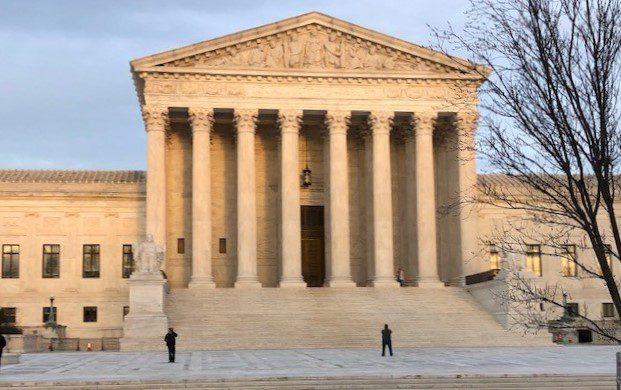

By: Jennifer Shutt
WASHINGTON — The U.S. Supreme Court announced Thursday it will hear oral arguments next month over President Donald Trump’s efforts to restructure birthright citizenship, though the justices won’t decide on the merits of the case just yet.
Instead, they will choose whether to leave in place nationwide injunctions from lower courts that so far have blocked the Trump administration from implementing the executive order.
The oral arguments, scheduled for May 15, will likely provide the first indication of whether any of the nine justices are interested in revisiting the Court’s interpretation of the 14th Amendment, which was ratified in 1868 following the Civil War.
The amendment states that “all persons born or naturalized in the United States, and subject to the jurisdiction thereof, are citizens of the United States and of the State wherein they reside.”
The Supreme Court ruled in 1898 in United States v. Wong Kim Ark that the 14th Amendment guarantees any child born in the United States is entitled to U.S. citizenship, even if their parents are not citizens.
Trump disagrees with that ruling and signed an executive order on his first day in office seeking to change which babies born in the United States become citizens. If that order were implemented, babies whose parents were “unlawfully present in the United States” or whose parents’ presence “was lawful but temporary” would not be eligible for citizenship.
Several organizations and Democratic attorneys general filed lawsuits seeking to block the executive order, leading to nationwide injunctions against its implementation.
Last month, the Trump administration asked the Supreme Court to intervene in the lower court’s nationwide injunctions, limiting them to the organizations and states that filed suit.
The three cases are Trump v. State of Washington, Trump v. CASA, Inc. and Trump v. State of New Jersey.
Nationwide injunctions by lower court judges have become an issue for Republicans in Congress as well as the Trump administration.
Iowa Republican Sen. Chuck Grassley introduced a bill in Congress that would bar federal district court judges from being able to implement nationwide injunctions.
“We all have to agree to give up the universal injunction as a weapon against policies we disagree with,” Grassley said during a hearing earlier this month. “The damage it causes to the judicial system and to our democracy is too great.”